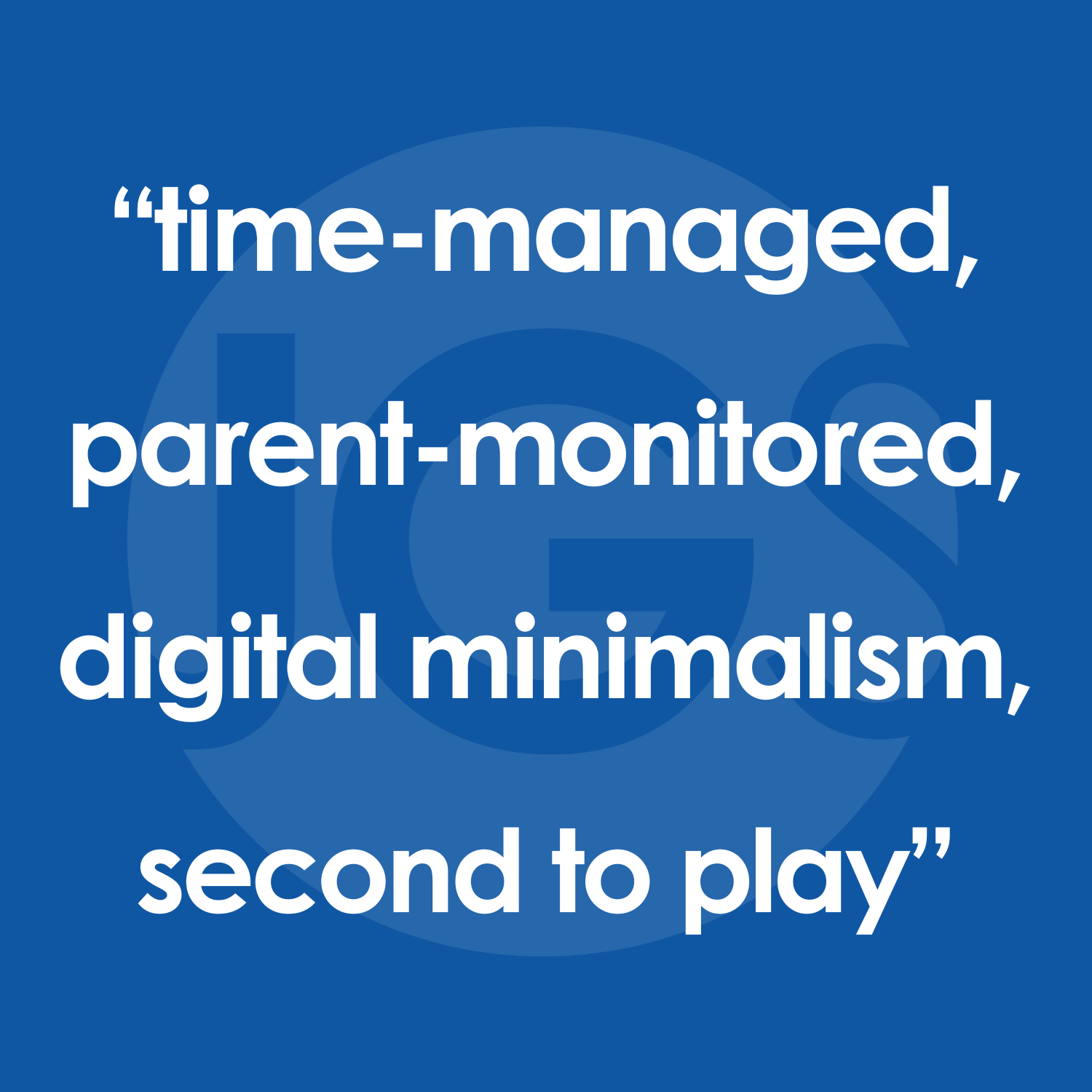I’m sitting in my house, on a Friday night of all things, trying, once again, to figure out how to solve the world’s problems. That’s what I am, after all. A problem-solver. A” fixer,” some say.
It’s been nearly 25 years since I launched my career and 15 since I opened the school. So, I think it’s fair to say that I’ve been around long enough to say what I am about to say…
I am scared — terrified, actually, about what will happen if we don’t do something about kids and their free access to technology.

JGS Spotlight
Author:
My realizations this evening…
I have spent countless hours managing “drama” that erupted overnight due to unmonitored group texts and chats. I have counseled dozens of parents who are at a loss about what to do with their reclusive, socially isolated children. At the extreme, I have even tried to help a brilliant 25-year-old young woman “get back into life” after spending the last 9-years holed up in her room, only socializing via Discord. The saddest of them all have been the situations where I have tried to help undo impulsive mistakes — something was sent or posted that can’t ever be undone — events that result in social isolation, trauma, and even legal ramifications. These snippets and sad realities have been a large part of my world as a long-term educational consultant and private school administrator. Ok, who am I kidding? I care and I help, not because of my titles, but because of who I am. A fixer. A problem-solver. An empath.
The amount of time I have spent dealing with issues related to social problems, most often spawned in one way or another due to social media and untethered access to technology, is unimaginable to anyone who doesn’t work with kids as a life-calling. For those of us who do, it’s the daily norm, and it’s the “thing” that makes it harder and harder to do what we love. We are seeing a steady increase in the number of children diagnosed with anxiety and depressive disorders and it is becoming increasingly more difficult to find mental health providers who are taking new patients.
My attempts…
So, what does one do when they need help on a schoolwide scale? Bring in the experts — digital citizenship experts to be precise! These well-meaning, knowledgeable people try very (VERY) hard to educate students and parents alike. They share stories about the dangers of social media and not monitoring children online. Over the years, attendance at these events dwindled to fewer than 10% of our enrolled families. We weren’t getting through to them.
Last year, one of our classes was out of control due to fights erupting on Discord. It was one of the hardest classes we had managed in our history as a school. Out of pure desperation, I had the parents come in as a group, something others had cautioned me about. Much to my surprise, they all agreed to put the same time limitations on technology use and to monitor the group more closely. For a few weeks, it was rough. The kids were mad and they were not shy about it. Then, finally, the calm came; their grades went up and the fighting dissipated. The kids were happy. The teachers and parents were, too. Did the parents take away technology altogether? No, they didn’t. They put limits and expectations and held their children accountable to being present, contributing members of their household. I took this as a huge win, a “fix” if you will, and wondered how I could replicate what had occurred over those six months.
A New Chapter of Optimism
Just when I was about to coin the phrase, “digital minimalism,” as my answer to helping families, The Anxious Generation came out. I listened to the audiobook last spring and found myself crying, high-fiving Jonathan Haidt through the air, but, most of all, I was comforted with the fact that I was no longer alone in the fight to “fix” this. So, I reread the book, and then I read Lenore Skenazy’s Free Range Children. Now, I have coined a new phrase to solve our collective problem,
“time-managed, parent-monitored, digital minimalism — second to play!”

This summer, parents have emailed me letters from other schools about how their schools are taking action regarding technology. At JGS, we removed personal devices years ago and/or put massive restrictions on their use. Why? It was actually a simple reason with a simple solution. Our children deserve to learn in an environment with fewer distractions so that they can play, make friends, learn to read and problem-solve. No devices are allowed on campus for students in lower school, middle school students can bring them but they are put away until school is over for the day, and we launched a permission-based, within-the-classroom-only system for our high school students (for electronic planners and college/real-world preparation purposes).
To ponder…
Before we took phones out of school, I was often the recipient of a confiscated phone from a child who had lost the privilege of having it that day. I am not overexaggerating, even a little bit, when I tell you that I have had to turn off every single one of them due to notifications coming through every second. Literally every second. SnapChat. Instagram. Text Messages. Be Real. Discord. ALL day. I ask, who can focus on doing anything with that amount of interruption? No one can.
Takeaways
As a society, and as a school, we cannot ignore what is happening to our children with the hope that it will somehow work itself out. We have to take action. Our children need us to act. JGS has so many exciting things happening this year that will promote this initiative — more play time, more community time, and more time away from our phones. Stay tuned for Part II of this series, Play First — coming soon.

